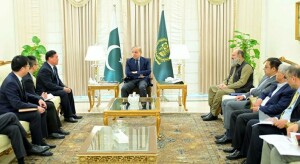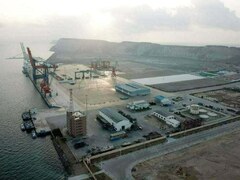Malaysia is gearing up for a positive 2004, with the economy seen as growing at its fastest pace in four years to become one of Asia's top stars amid rising optimism after Prime Minister Abdullah Ahmad Badawi's landslide election victory, analysts say.
The central bank Friday raised its economic growth target this year to 6.0-6.5 percent, up from 5.5 to 6.0 percent previously, after a better-than-expected showing of 5.2 percent in 2003.
For the second time in a year, Bank Negara Malaysia also eased exchange control rules to cut the cost of doing business as part of a drive to boost competitiveness and curb a flight of investors to lower-cost countries such as China.
It announced it would implement a new interest rate framework in the next few months to improve efficiency in the financial markets and assured rates would remain low.
But it rejected pressure to free-float the local currency, fixed at 3.80 to the dollar since 1998, saying in its annual report that the peg was still sustainable despite the weaker US unit and crucial to boost trade and investment.
The rosy prospects and new measures, coming less than a week after Abdullah's ruling coalition crushed Islamic fundamentalists in a March 21 vote, will raise the country's attractiveness to the global business community, economists say.
It is expected to bring cheer to the Kuala Lumpur Stock Exchange, which has risen by some 13 percent after recently hitting its highest level in nearly four years.
But some economists say the stability of the ringgit peg remains a concern amid continued weakness in the dollar and potential devaluation of the Chinese yuan.
"After having received a thumping win in the recent elections, the report is another morale booster for the economy as well as the market," said Manokaran Mottain, economist with SBB Securities.
"Investors, especially foreign fund managers, will be excited by the new policies on foreign exchange and the proposed interest rate framework, which allays fears of a rate hike."
Azrul Azwar, economist with MIDF-Sisma Securities, said the new growth target would be Malaysia's best result since the 8.5 percent expansion in 2000, making it one of the top performers in the region this year after China, Thailand and India.
He said the easing of forex rules, especially allowing unit trust and insurance firms to invest abroad and for multi-national companies to issue ringgit bonds to raise funds locally, was "revolutionary" and part of preparations for financial sector liberalisation in 2007.
"It appears to be a pre-emptive move to mitigate any possible inflows of hot money into the system that could cause overheating. It will certainly boost Malaysia's attractiveness to investors," he said.
But there are potential risks.
These included US economic growth, ringgit peg stability, pressure to sustain local interest rates if global rates reverse their trend, renewed fears of terrorist attacks on US interests after the recent Middle East turmoil and a potential revisit of deadly virus outbreaks, analysts say.
BR100
7,869
Increased By
30.8 (0.39%)
BR30
25,605
Increased By
145.4 (0.57%)
KSE100
75,291
Increased By
360.3 (0.48%)
KSE30
24,216
Increased By
69.8 (0.29%)





















Comments
Comments are closed.